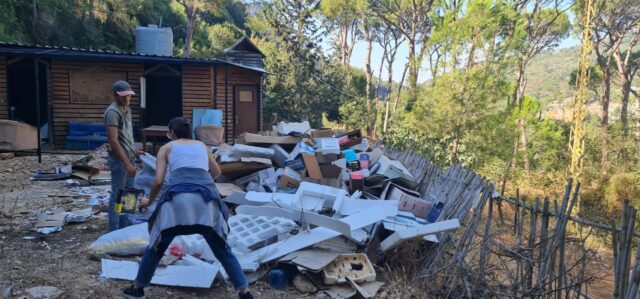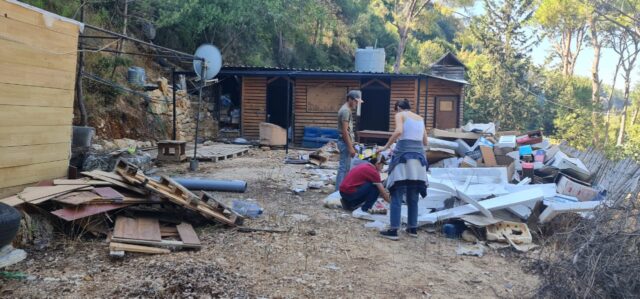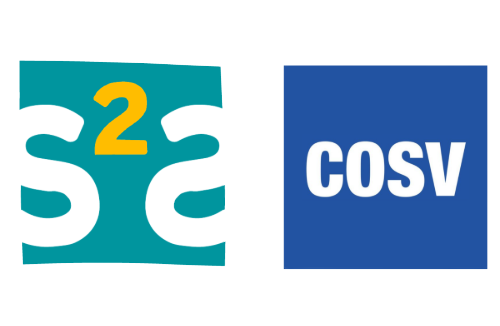The Green Circle
The partnership between ‘0-Waste Community’ and ‘Dekent Nes’ emerged during the SJIP program, with Garbaliser expressing interest in adopting their model for Baalbek. ‘Green Circle’ initiative was born, focusing on sustainable waste management and eco-friendly product distribution in a Chouf village. It offers door-to-door waste collection, segregating organic and non-organic waste to reduce landfill waste and promote recycling. Liquid fertilizer, derived from treated organic waste, enhances soil fertility and crop yield sustainably. Environmentally friendly shopping experiences at Dekent Nes community shop promote sustainable living by offering discounts on Lebanese-made eco-friendly products, reducing carbon footprint and supporting local economies.
Under SJIP, the “Green Circle” initiative received an $18,000 grant, facilitating the establishment of an innovative waste management hub on municipal land. Activities include scheduled waste collection, advanced sorting, selling non-organic waste, and converting organic waste into fertilizers.
The initiative incentivizes community sorting efforts with discounts, it has employed five individuals and demonstrated resilience despite challenges.
Despite the challenges that they faced which are most importantly, tracking engaged residents and lack of funding for a digital management system, the initiative still had major achievements which include expanding the sorting points and increasing revenue. The project benefits 147 community members and 15 refugees, with a diverse demographic distribution.
The Green Circle project employs a hybrid resource model, utilizing international grants, revenue from sales, unused public assets, and personal funding for financial stability and long-term viability. This approach diversifies funding sources, promotes sustainability, and fosters community engagement.
The project’s unique value proposition lies in its partnership model, which involves private and municipal warehouses for waste management. Through collaboration with the Municipality of Bshatfeen, the project expands waste management in a rural area, engaging citizens and activists in sorting mechanisms and offering discounts for participation. This replicable model demonstrates sustainable waste management and community empowerment.
The sustainability of the Green Circle project relies on revenue from waste sales and Dekenet Nes products, with responsibilities shifting to optimize efficiency. They aim for a 5% monthly increase in sorting checkpoints to reach zero waste while seeking additional funding for a data management system.
The project serves as a model for waste sorting and sustainability, aiming for broader impact in Lebanon.



